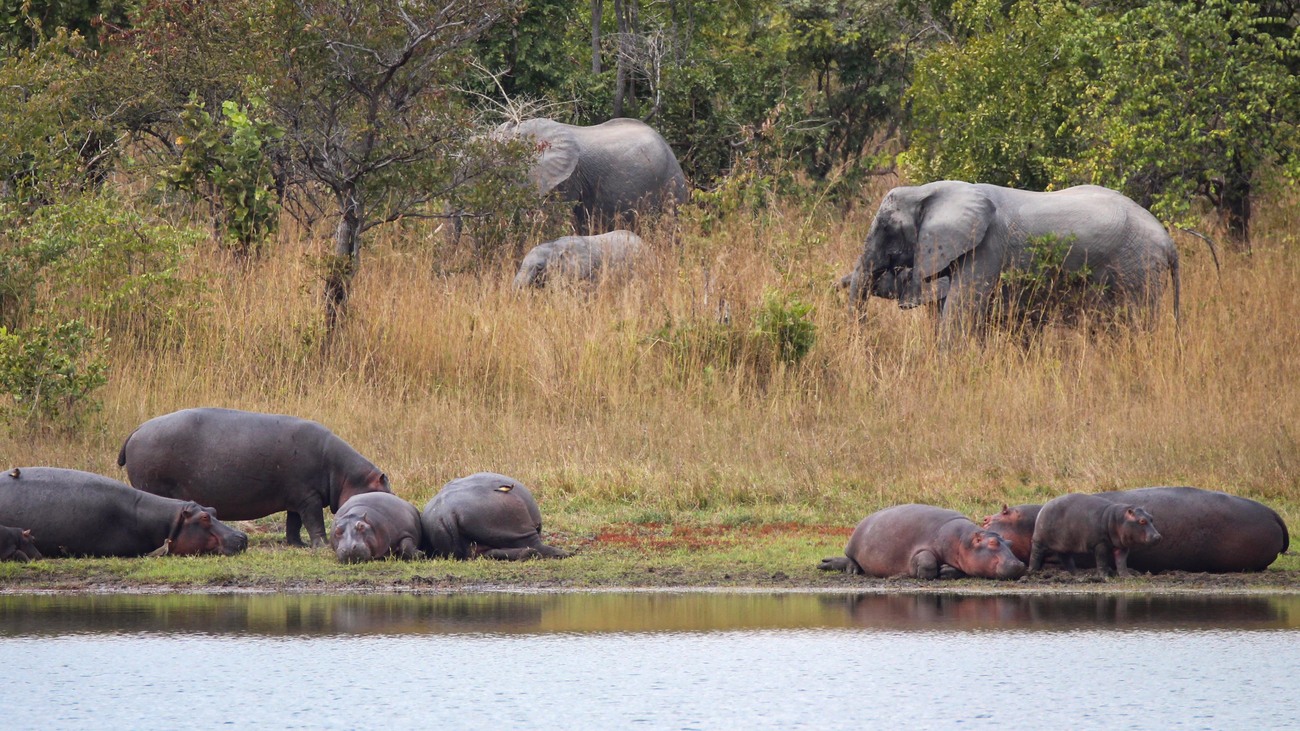Malawi Zambia Elephant Landscape Project
Most African elephant range areas transcend national borderscombatting wildlife crime on the Malawi-Zambia border
combatting wildlife crime on the Malawi-Zambia border

Located in the west of Kasungu district and bordering Zambia, Kasungu National Park is home to various protected, endangered and even critically endangered species like elephants, pangolins, buffalo, roan and sable antelope and zebra.
In the past, rampant poaching for bushmeat and ivory drastically reduced the numbers of many species with elephant numbers decreasing from 1,040 individuals in the 1970s to just 50 in 2015. The Combatting Wildlife Crime project in the Malawi-Zambia landscape is turning all of that around, thanks to the generous funding of USAID.
The project which is being implemented by the International Fund for Animal Welfare (IFAW) is supporting Malawi and Zambia’s Department of National Parks and Wildlife with combatting wildlife crime.
Park rangers are on the front lines protecting wildlife from poachers, enforcing the law, and apprehending suspects. Apart from law enforcement, wildlife rangers also provide environmental education awareness lessons to people committing minor offences such as illegally entering the park to collect firewood, caterpillars or mushrooms.
Project background
IFAW’s Malawi-Zambia landscape project which is supported by USAID targets Luambe National Park and Lukusuzi National Park in Zambia and Malawi’s Kasungu National Park.
The Malawi-Zambia landscape emerged as a major ivory transit route because of its geographic location. Ivory moves from northern Mozambique, south-eastern Tanzania and Zambia through to Malawi where it is illegally processed for consumer markets in Southeast Asia and China.
Beginning in May 2017 and concluding in 2022, the goal of the project is to see wildlife populations stabilise or increase in the targeted landscape through a decrease in poaching-related mortalities.
In partnership with government agencies in Zambia and Malawi, the project is strengthening wildlife law enforcement in the region by supporting regional coordination among agencies. IFAW has brought together all relevant stakeholders in the landscape to create an enduring conservation partnership to better leverage resources and attain sustained wildlife protection with particular attention to creating community awareness and community participation in wildlife protection.
Park rangers' experience in the bush
Mostly, when people go to work, they knock off at the end of the day, but the story is different for park rangers at Kasungu National Park as they spend almost a month on patrol in the bush protecting wildlife.
“I work with Malawi’s Department of National Parks and Wildlife (DNPW), but for now I am deployed to assist in the five-year project being supported by the International Fund for Animal Welfare (IFAW),” says Clifford Mulenga, one of the rangers.
“Poaching has long been a challenge in Kasungu NP so the management decided to change the approach to ensure that wildlife is protected, my team spends almost a month in the bush at a time, away from our families.”
General Mwale is another of the rangers identified by the DNPW to go on long patrol.
“At first, it was a challenge to spend 18 days at a time in the bush, but now we are used to the arrangement. When our families face problems, the Department and project management help them. This is reassuring as it is difficult for our families to reach us while in the field,” Mwale says.
Mwale says the project supports them with food rations, tents, uniforms, sleeping bags, shoes and other monetary incentives.
Successes of the project
Poaching is now greatly reduced in Kasungu National Park thanks to the incredible efforts of the rangers.
Late last year, an aerial wildlife survey showed us wildlife numbers including elephants has doubled from 2014 to 2020. The number of elephants has increased from 40 to 121, buffalo from 61 to 165, roan antelope from 74 to 248, sable antelope from 93 to 397, kudu from 30 to 176, hartebeest from 54 to 147 and puku from 22 to 45.
In July 2020 small breeding herds of zebra and waterbuck were also reintroduced into Kasungu.
Related content
every problem has a solution, every solution needs support.
The problems we face are urgent, complicated, and resistant to change. Real solutions demand creativity, hard work, and involvement from people like you.